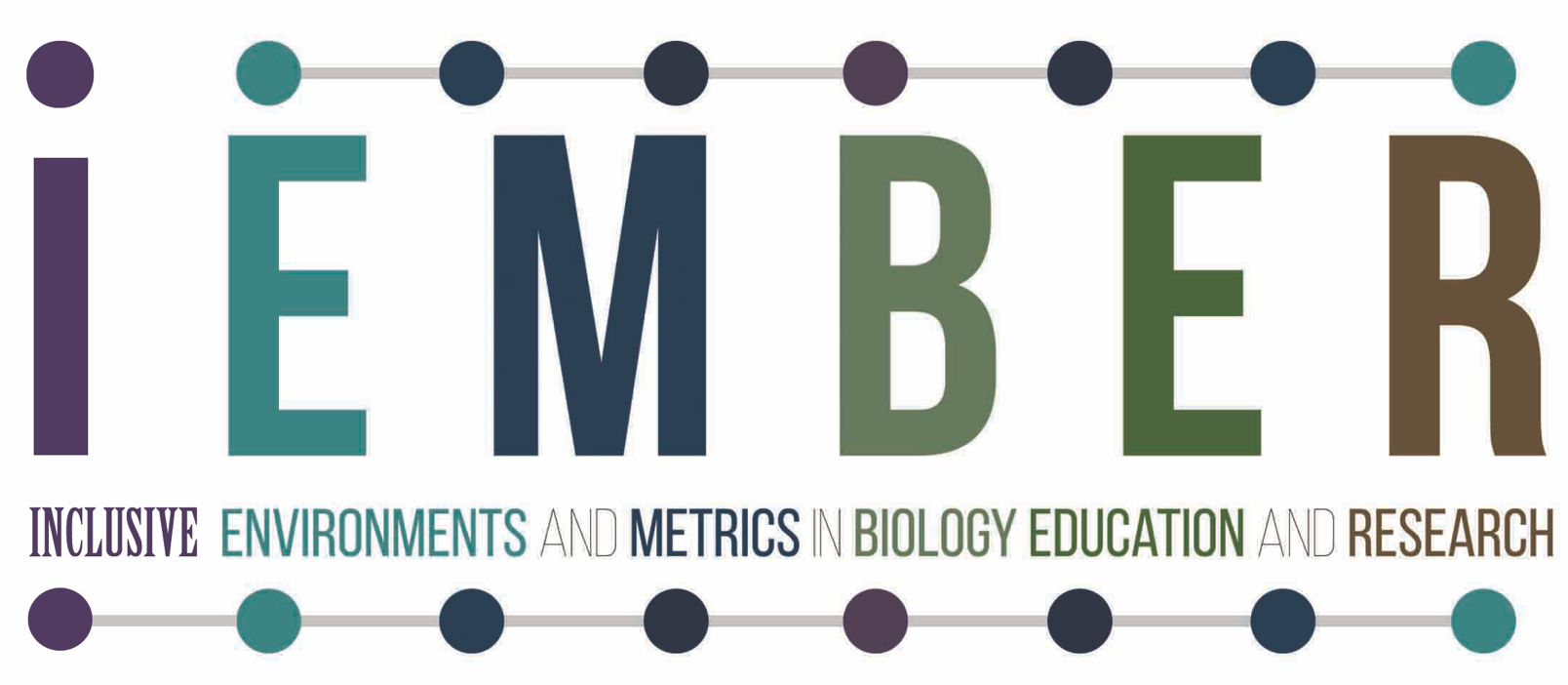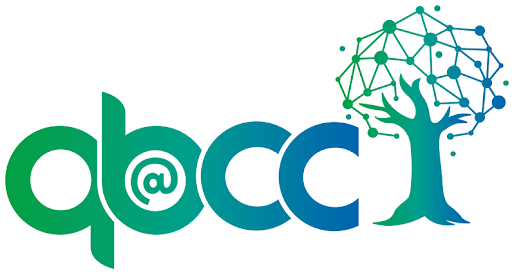
In this newsletter:
QUBES News
Partner News and Opportunities
Resources and Opportunities
QUBES News
New Grant Services Page Features How QUBES Can Support Your Education Project
Writing a proposal for an education project? Learn how QUBES can support your project on our new Grant Services page.
QUBES has a comprehensive project support infrastructure, built by and for STEM educators. Hosting a project on QUBES can help to address challenges such as building and coordinating your community, disseminating your products, and documenting your impacts.
Please visit our new Grant Services page to learn more about how QUBES can be used to support education projects. Or fill out this brief form, and we will get in touch with you.
Announcing our Spring 2021 Faculty Mentoring Networks

We’re currently on track to run a record number of FMNs in the spring! A full announcement, with descriptions of each FMN and links to apply, will be forthcoming in November. The following FMNs will be accepting applications:
An FMN brings a small group of like-minded educators together to: discuss pedagogy; share resources; adapt, implement, and share teaching materials; and create a community around a given topic. Find out how FMNs can broaden the impacts of your project.
Spring 2020 Faculty Mentoring Networks Publish Products
Our Spring 2020 FMNs have published the products of their work--check out the many adapted and new resources at the bottom of each FMN page!
Google Drive File Connector Now Functioning
Group leaders can again link Google Drive accounts to their projects to easily share and collaborate on files with their teams. To learn how to connect Google Drive to your QUBES project, visit our Knowledge Base article.
Partner News and Opportunities
Save-the-Date!

December 14, 2020, 1:30-3:30 pm ET
Join us in promoting your partnership with QUBES at our Partners@QUBES Leadership Summit. Together, we’ll celebrate your accomplishments, strengthen and connect our communities, and make your work and QUBES’ support more visible.
This virtual event will feature lightning talks from partner leaders to showcase the excellent work we’ve done together and provide opportunities for networking and discussion with leaders in the QUBES community. Learn how other groups are using QUBES, find new collaborators and resources, and brainstorm ways to overcome project challenges.
Those interested in partnering with QUBES are also welcome to attend.
Join the partner support group for announcements and registration information!
Featured Partner: iEMBER

The very timely vision of the iEMBER (inclusive Environments and Metrics in Biology Education and Research) Network is to improve biology education with a particular focus on learners traditionally excluded from the field. Funded by NSF’s RCN-UBE Program, they aim to build a network of researchers, educators, and change-makers from a variety of perspectives to broaden participation through interdisciplinary collaborations in biology education research. View the full profile of iEMBER here!
How the QUBES community can engage with iEMBER
Join the network! Check out iEMBER events to attend and get involved. The next full conference will be in Spring or Summer 2021.
Read about the network! Learn more at the iEMBER group page. Read the group’s publications about building the community in CBE-Life Sciences Education and American Society for Microbiology.
Read more about what iEMBER has been up to and how they use QUBES to achieve their goals.
QB@CC Recruits Community College Faculty for Spring 2021 Incubator

Are you interested in developing open educational resources to introduce quantitative skills in a life sciences classroom AND provide life science context and data in a mathematics classroom? Apply now to join a 2021 Spring QB@CC Incubator!
Participants in incubators will focus on developing data-driven modules that could be used in both undergraduate life science and mathematics courses. Accepted applicants will work in groups that include math and biology faculty, select a mutually interesting quantitative biology topic, and collaborate to develop educational modules appropriate for use in their own classrooms.
Applications are due December 13, 2020. Please visit the QB@CC news page for additional information and instructions about how to apply.
Genome Solver Offers Workshop on Bioinformatics Tools and Implementation

Looking for online lab work for your students? Interested in learning more about basic bioinformatics tools?
Come to our Genome Solver MiniWorkshop!
Friday, December 11, 2020 - 2:00-5:00 p.m. ET
Friday, December 18, 2020 - 2:00-4:00 p.m. ET
On December 11, we will be covering the basic bioinformatics tools, and on December 18, we will be covering implementation of our science project in the classroom.
For more information, please contact Anne Rosenwald (anne "dot" rosenwald "at" georgetown "dot" edu).
iDigBio Continues Webinar Series on Natural History Collections in Virtual World

Recognizing the rapid changes happening within museum communities and the efforts being made throughout the community to adapt to these changes, iDigBio is organizing a webinar series: Adapting to COVID-19: Resources for Natural History Collections in a New Virtual World.
The next webinar, Engaging Public Participation in Collections Digitization, will be held on November 18 from 2:00 - 3:30 pm ET.
Visit the iDigBio webinar series page for more information and a Zoom link.
Resources and Opportunities
University of Nebraska Invites Participation in Quantitative Modeling Study
Do you integrate quantitative skills into your biology course?
We’re looking for instructors who take different approaches to integrating quantitative skills with biology concepts in their courses to participate in an NSF-funded research project. Examples include working with graphs/formulas, developing quantitative models, or reflecting on the purpose of mathematical models.
Participating instructors will be engaged intermittently over the course of three years and will be compensated $500.
For more details about expectations, please visit our blog announcement, or sign up to participate in the study here. Questions can be directed to Joe Dauer (joseph “dot” dauer ”at” unl” dot” edu).
NSF’s IUSE Program Continues Webinars on Proposal Preparation
 The next webinar, Institutional and Community Transformation (ICT) Track, is November 10, 3:00 - 4:30 pm ET. The next webinar, Institutional and Community Transformation (ICT) Track, is November 10, 3:00 - 4:30 pm ET.
The ICT track seeks to fund innovative work on systemic change that may be measured at the departmental, institutional, or multi-institutional level, or across communities of STEM educators and/or educational researchers. Projects are expected to include one or more theories of change to guide the proposed work and this webinar will provide information about expectations for identifying and incorporating theories of change.
For more information and to register, visit the event page.
NSF Hosts Office Hours for RCN-UBE Program
Weekly office hours will be held on the following Fridays from 1:00 to 3:00 p.m. ET.
- November 6, 13, and 20, 2020
- December 4, 11, and 18, 2020
- January 8, 14, and 15, 2021
Visit the RCN-UBE page for more information.
NSF Holds Virtual Grant Conference
Join NSF for the very first NSF Virtual Grants Conference, to be held during the weeks of November 16 and November 30, 2020.
The conference is designed to give new faculty, researchers and administrators key insights into a wide range of current issues at NSF.
Meet a Mathematician Interviews Kamuela Yong from the University of Hawai‘i–West O‘ahu
The Meet a Mathematician series continues with a new interview with Kamuela Yong! Visit the Meet a Mathematician website to view the video, and nominate a mathematician here.
Members of the QUBES team are participating in some re-imagined conferences that will be happening through the QUBESHub. We're always looking to meet others who have a passion for quantitative biology education. Reach out so we can help you gather your collaborators, move projects forward, and continue to move quantitative biology forward. Connect with us by submitting a support ticket.

From left to right: Sam Donovan (Director of OER), Carrie Diaz Eaton (Director of QUBES Consortium), Kristin Jenkins (Director of BioQUEST), Drew LaMar (Director of Cyberinfrastructure), and Jeremy Wojdak (Director of Professional Development).
Do you have a product or result from a QUBES sponsored activity? Help us measure our success by sharing your product or result with QUBES. Learn how to cite QUBES.
|